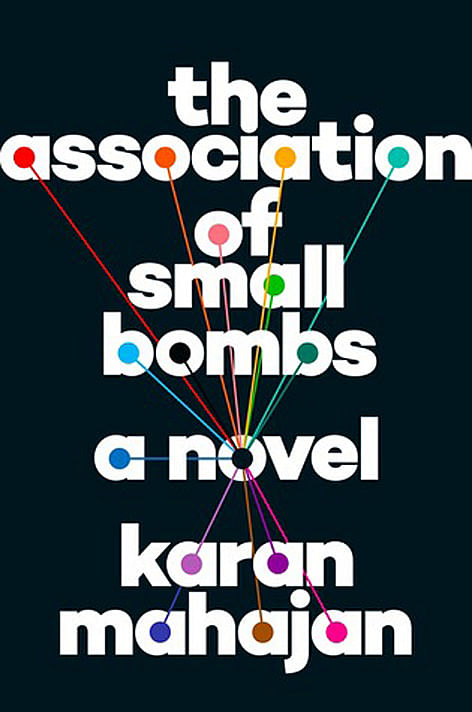A tale of shattered lives
Karan Mahajan's story of grief and terror is based on a real-life tragedy in his childhood

Two decades ago, a bomb went off in Delhi's bustling Lajpat Nagar street market, just 15 minutes away from Karan Mahajan's home.
He knew the place well: He and his parents would jostle through the crowds there, flitting from shop to shop for medicine and school uniforms.
Just a day before the blast, his grandmother was at the market, looking for yarn.
This real-life tragedy, which left 13 dead and 30 injured, kicks off Mahajan's second novel, The Association Of Small Bombs.
But after the bomb is detonated in the first chapter, the 32-year-old writer invents a devastating cast of characters and circumstances to tell a powerful tale of grief and the consequences of terror - not just on its victims, but also on its perpetrators.

The bombing robs the Khuranas, the Hindu couple whose misery colours most of the book, of their two young sons.
The brothers are killed on the spot while fetching the family's ailing television set from the market, but their best friend Mansoor Ahmed, a sheltered 12-year-old who lives with his overprotective Muslim parents in the same housing complex, survives.
"The final draft seemed to write itself in a sort of panicked dream. I was ready for it. I had spent enough time meditating on the subject," says Mahajan, who was born in the United States, but grew up in India.
"Still, the hardest part was writing about Mansoor, the young boy injured in the attack. His experience isn't as obviously urgent as that of a terrorist or of parents who lose their children in the attack. For that reason, though, I relished the challenge."
The Ahmeds, who now struggle to deal with a son haunted by the bomb blast, send Mansoor to university in California in the hopes that he will find a breath of fresh air abroad.
But trauma from his childhood comes calling once more: He sustained injuries to his wrist in the blast and cannot fulfil his dream of being a programmer.
When Mansoor, disillusioned and in despair, returns to India, he falls in with Ayub, the leader of a group of activists who believe corrupt policemen have rounded up innocent men and accused them of terrorism.
Soon, Ayub and Mansoor find themselves embroiled in the plans of a Kashmiri terrorist group to plant a bomb in Delhi.
Mahajan shines a light not just on the victims caught in the wake of tragedy. He also delves into the minds of attackers and how they fall into terrorism: His terrorists are not just driven by political ideology or religion.
Some of them also find themselves trapped in extremist groups out of the human need to find belonging and a purpose to their lives.
"I think we forget, when we talk about ideology or religious radicalism, that much of life is quotidian, that most moods are arbitrary, that much human interaction is petty," says Mahajan.
"By dragging the subject down to a human scale, I could see it more clearly and the stereotypes fell away."
His characters never quite recover from their grief - and Mahajan found it hard to shake himself out of the dark cloud of topics he explored in his writing.
"It definitely weighed me down. I think it darkened my worldview, though, like a method actor. I can't say what came first: the worldview or the story. Humour, for example, can be a way to avoid grief, so I'm glad I went down to the depths with my characters. It hurt me, but it must have cured me in other ways I am only beginning to understand now," he says.
"My portrayal of grief, I hope, is realistic. There isn't always recovery, especially from huge, devastating attacks on individuals."
•The Association Of Small Bombs ($27.77) is available at Books Kinokuniya.
Join ST's Telegram channel and get the latest breaking news delivered to you.
A version of this article appeared in the print edition of The Sunday Times on November 27, 2016, with the headline A tale of shattered lives. Subscribe

